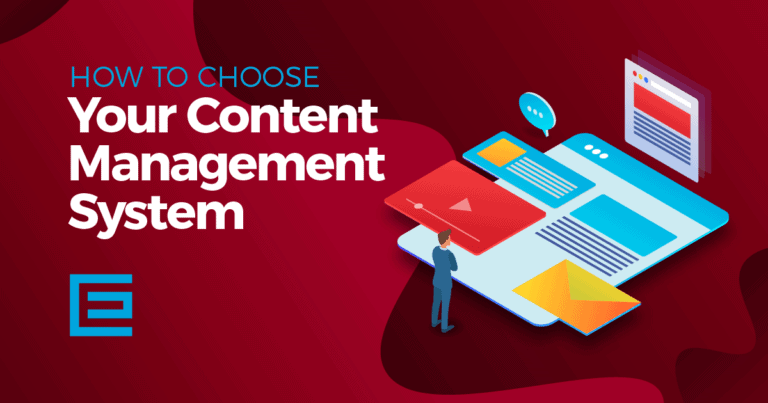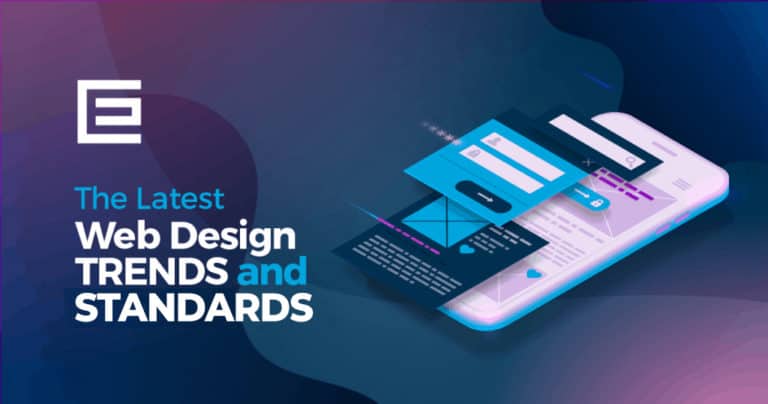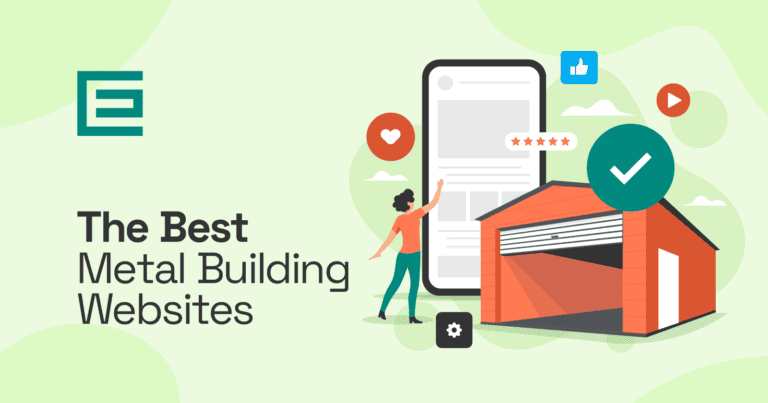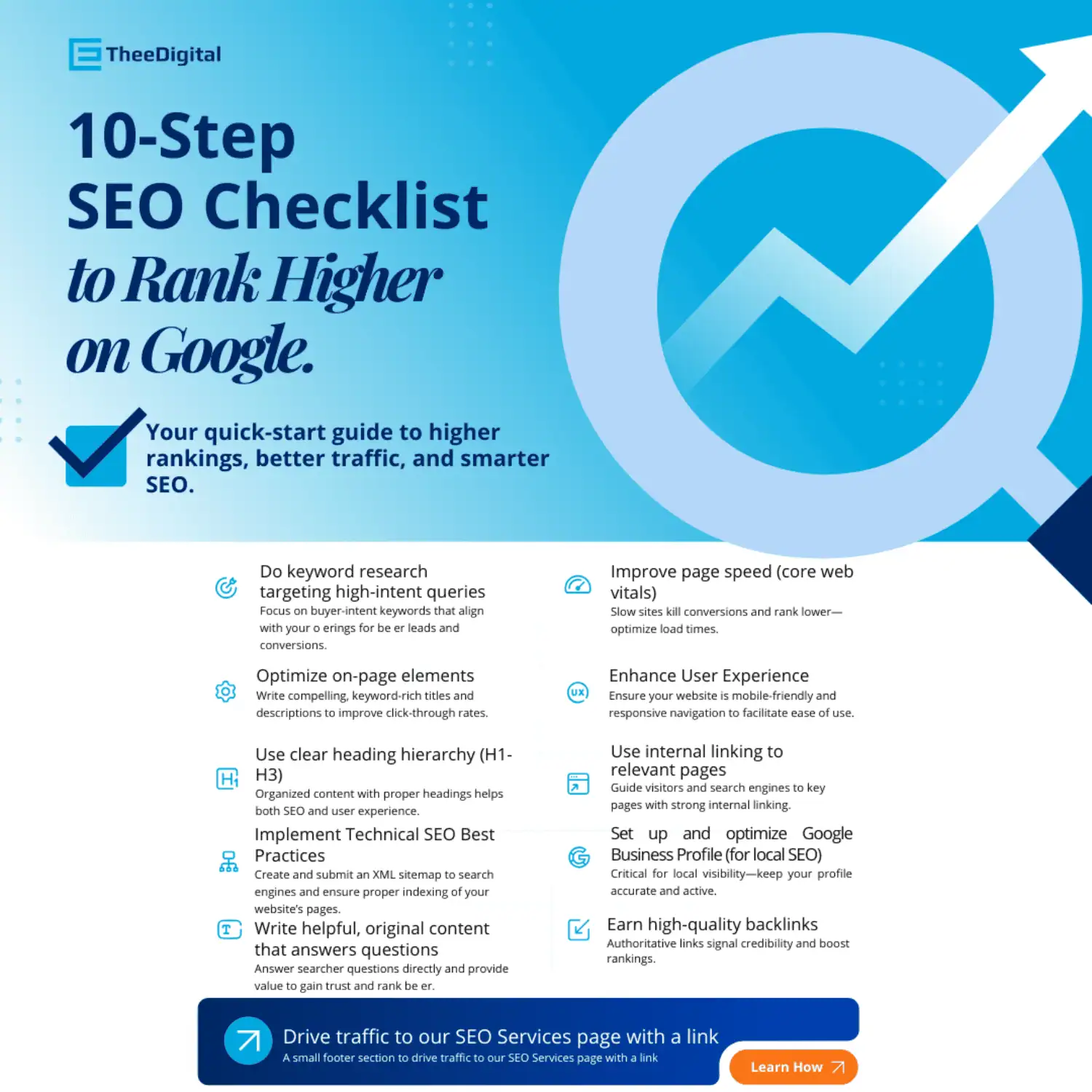In 2026, website builders have evolved into sophisticated platforms that empower businesses and marketers to create high-performing sites without deep coding expertise. With AI integration at the forefront, these tools now handle everything from automated layouts and content generation to personalized user experiences. This guide draws from extensive research into current trends, expert reviews, and user feedback to highlight the most effective options. We’ll evaluate key capabilities, compile a vetted list of top builders, and provide practical strategies for selection and implementation. Whether you’re a small business launching your first site or an enterprise scaling operations, the focus is on design flexibility, SEO readiness, performance, scalability, and conversion optimization.
It’s generally recommended to select a website builder with a CMS- content management system as that can allow you more convenience in the control of your site. A CMS allows you to house your images, videos, PDFs, and more. This generally makes it much easier to edit and expand your website. It is also easier to organize and control 1 database with all necessary information.
- 1Key Features to Consider in a Website Builder
- 2 Top Website Builders of 2026
- 3Side-by-Side Comparison of Top Features
- 4User Experience and Interface Comparison
- 5Exploring Customization Options in Website Builders
- 6SEO Features in Website Builders
- 7Understanding Pricing Structures
- 8Types of Customer Support Offered
- 9Decision Criteria by Business Type and Budget
- 10Moving Forward
- 11FAQs
Key Features to Consider in a Website Builder
When selecting among the best website builders, there are several key features to consider to ensure that the platform meets your specific needs, especially when looking at the best website builders of 2026 and how they compare to best website builders of 2025:
- AI Design Help: Look for the best AI website builders that have AI for content generation, layout suggestions and automated design optimisation. This should include the ability to create and edit designs with natural language commands.
- Performance and Core Web Vitals: The best website builders should prioritise performance metrics like load time, interactivity and visual stability. It should auto optimise images, implement lazy loading and have built in performance monitoring tools.
- Advanced Accessibility Features: Look for built in WCAG compliance tools, automated accessibility checking and options to create designs for all users including those with disabilities in the best website builders 2026.
- No-Code/Low-Code: The platform should have visual drag and drop interfaces and the ability to add custom code when needed for all technical levels, a hallmark of the best website builders for small business.
- Enhanced Security: Modern security features should include auto SSL, DDoS protection, bot detection and built-in compliance with global privacy regulations like GDPR and CCPA in top best website builders.
- Advanced Mobile: Beyond basic responsiveness look for mobile first design tools, AMP support and PWA capabilities for app like mobile experiences in the best AI website builders.
- Headless CMS: The best website builders 2026 should have headless architecture options for businesses that want to separate content management from the frontend presentation layer.
- Sustainability Tools: Look for the best website builders that have carbon footprint monitoring and optimisation features to create more eco friendly websites.
- Interactive Elements: Built in support for modern interactive elements like 3D, animations and immersive experiences with performance optimisation in best website builders 2026.
- Advanced E-commerce: Advanced e-commerce features should include omnichannel selling, AI powered product recommendations, AR product previews and multiple payment options including cryptocurrency in the best website builders for small business.
Top Website Builders of 2026
1. WordPress
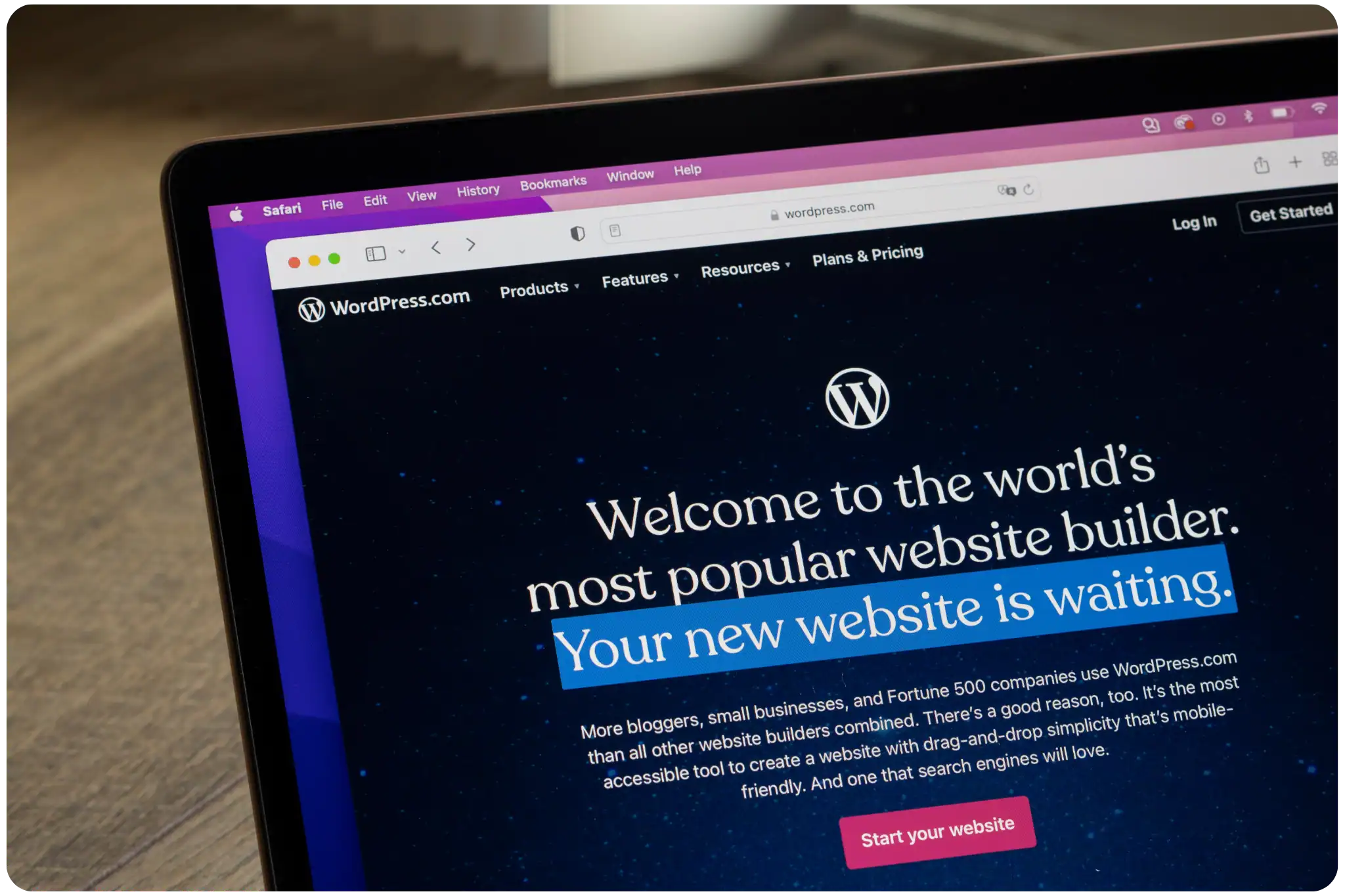
Why Choose WordPress as Your Website Builder
WordPress remains a powerhouse among the best website builders of 2026, powering over 43% of sites with AI plugins and headless options, advancing from best website builders of 2025.
Key Features
- Full Site Editing (FSE) – The new Gutenberg editor has become a full site builder, true drag and drop no code
- AI – WordPress now has AI powered content generation, image optimization and layout suggestions through plugins like Jetpack AI and Elementor AI
- Headless WordPress – Headless architecture is growing and WordPress can be used as a backend for modern frontend frameworks like Next.js and React
- Block Patterns and Global Styles – Design systems that span entire sites
- Performance Optimization – Core Web Vitals and page speed built in
Essential Modern Plugins
- GenerateBlocks Pro – Create custom layouts with no code
- WP Rocket – Caching and performance
- Rank Math – AI SEO
- Bricks Builder – Visual building with dynamic data
- WordFence – Enterprise level security with machine learning
- FacetWP – Filtering and search
- Advanced Custom Fields Pro – Complex content structures
Modern E-commerce
- WooCommerce with headless commerce
- Multi-vendor marketplace
- Subscription based business models
- Digital product delivery
- Integration with modern payment systems including cryptocurrency
Why WordPress is still relevant
- Open source foundation with community innovation
- Enterprise level scalability with modern hosting
- Extensive API for custom integrations
- Accessibility and inclusive design
- Growing AI powered tools
- Native support for modern development practices
Features: Advanced block editor, AI, headless, customization through modern page builders.
Ease: Much better with FSE, but advanced features still require technical skills.
Pricing: Free core, modern hosting $20-$500/month.
Development: Active in AI, performance, modern JavaScript.
2. Shopify

Why Choose Shopify as Your Website Builder
Shopify is a leading choice in best website builders 2026 for e-commerce, with AI recommendations and omnichannel support.
1. AI Solutions: Automated content, product recommendations and AI powered customer support to simplify your business and customer experience.
2. E-commerce tools: Built for online retail with inventory management, multi channel selling and predictive analytics.
3. Omnichannel: Unify online and offline retail with POS systems, real-time inventory sync and consistent customer experience across all touchpoints.
4. Social Commerce: Built in integrations with TikTok Shop, Instagram Shopping and other social platforms to sell and engage on social.
5. Full Analytics: Advanced data analytics to get customer insights, purchase patterns and predictive inventory management to make informed decisions.
6. Security & Compliance: Enterprise level security with fraud analysis tools, data protection and automated compliance updates for global commerce.
7. Future Proof: Headless commerce through Hydrogen and Oxygen, custom frontend experiences while keeping the backend robust.
8. Sustainable Commerce: Carbon neutral shipping, sustainability tracking and features to help merchants reduce their footprint.
9. Flexible Payments: Modern payment methods including Buy Now Pay Later, cryptocurrency and localized payment options along with traditional methods.
10. Enterprise Ready: Scalable infrastructure to support from startup to enterprise, automated scaling and performance optimization.
Features: AI powered e-commerce platform with headless commerce and omnichannel solutions for modern retail.
Ease of Use: Sophisticated features with simple design, AI assistants for setup and management.
Pricing: Premium pricing for advanced features and enterprise grade, scalable plans for different business sizes.
Customer Reviews: Highly rated for innovative features, AI integration, and ability to scale across multiple sales channels.
3. Wix
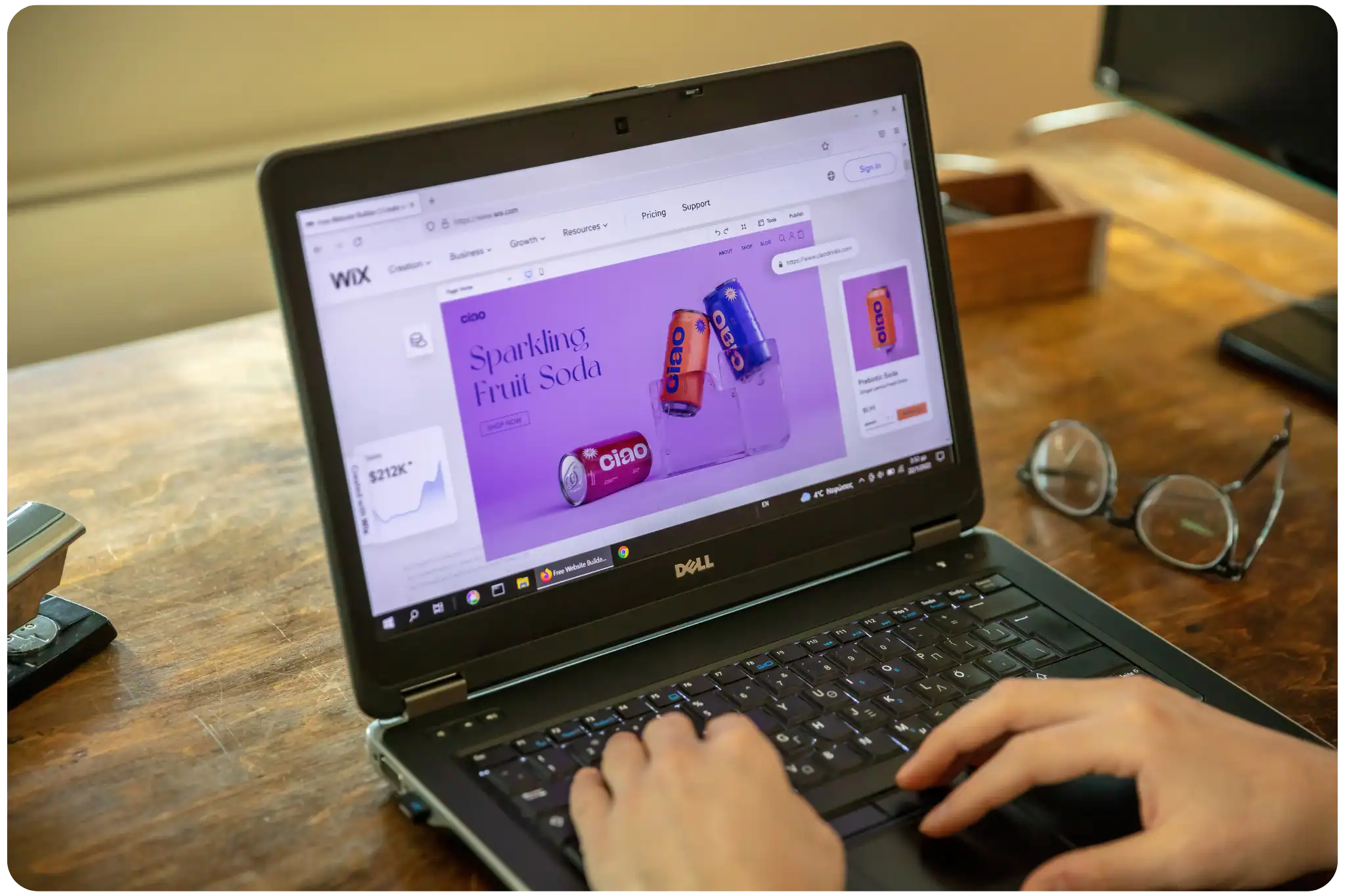
Why Use Wix as Your Website Builder
Wix’s AI builder creates full sites from prompts, including layouts, copy, and images. SEO tools cover metadata, sitemaps, and schema; performance via CDN and optimization. Excellent for e-commerce with built-in payments and integrations like Zapier. Accessibility includes auto-alt text. Customization via code embeds. Ideal for budgets under $500/year.
- AI Website Builder: Smart site generation using Wix ADI technology, with contextual design and content recommendations tailored to your industry.
- Web Apps: Create PWAs and dynamic websites with Wix Velo, custom functionality and database driven content without coding.
- Design System: Advanced design system with custom animations, scroll effects and responsive layouts using modern CSS Grid and Flexbox.
- Performance: Edge-cached content delivery with smart resource loading and predictive preloading for optimal speed.
- E-commerce Suite: Multi-channel selling, dropshipping integration and inventory forecasting with real-time market insights.
- Business Intelligence: Comprehensive performance metrics with predictive modeling and automated insight generation.
- Marketing Hub: Integrated campaign orchestration with behavioral targeting, automated journey mapping, and conversion optimization.
- Enterprise Security: Multi-layer threat protection, continuous security monitoring, and comprehensive data privacy framework.
- Headless: Create custom frontend experiences with Wix Velo and extensive API ecosystem.
- Sustainability: Environmental impact dashboard with actionable insights for reducing digital carbon footprint.
Features: Smart development ecosystem, enterprise-grade design tools, and integrated business solutions.
Ease of Use: Visual editing with developer extensibility, AI assistance for beginners and professional tools for experts.
Plans: Flexible pricing structure with specialized features for different business scales.
Reviews: 5 stars for intelligent design tools, 4 stars for platform performance.
4. Squarespace
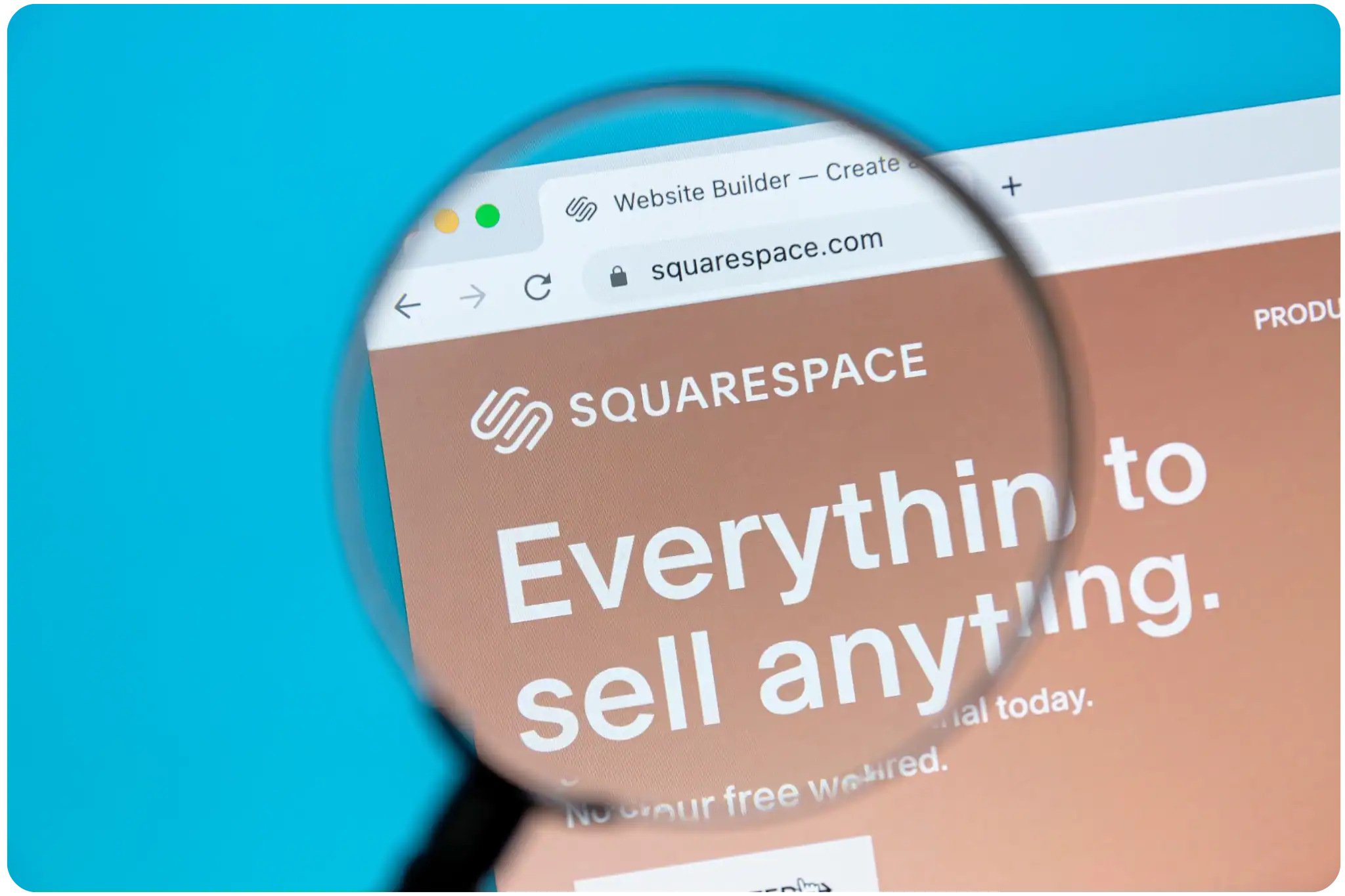
Why Choose Squarespace for Your Website
Features designer templates with AI personalization. Top-tier SEO with clean code and fast loading; Core Web Vitals optimized. Mobile-responsive editing and WCAG tools. Security with SSL and backups. E-commerce supports subscriptions; strong blogging. Developer options are limited but sufficient for most.
- AI Design: Intelligent design system that generates purpose-built layouts while preserving Squarespace’s signature aesthetic standards.
- Dynamic Content Systems: Context-aware content management with smart scheduling and personalized user experiences.
- E-commerce Suite: Unified commerce platform with predictive inventory management and social selling automation.
- Performance Architecture: Next-generation speed optimization with intelligent resource loading and automated performance tuning.
- Business Hub: Unified business command center with AI-powered growth metrics and automated marketing optimization.
- Enterprise Security: Advanced threat detection, military-grade encryption, and global privacy compliance integration.
- Sustainability: Green hosting infrastructure with real-time environmental impact monitoring and optimization.
- Portfolio Tools: Creative asset management with AI-enhanced media optimization and immersive gallery experiences.
- Member Areas 2.0: Advanced community platform with smart engagement tools and premium content delivery.
- Cross-Platform: Seamless integration ecosystem with automated workflow orchestration.
Features: Design-focused platform with intelligent tools and integrated business solutions.
Ease of Use: Streamlined interface with AI assistance for complex features.
Pricing: Value-based pricing with scalable professional and enterprise options.
Customer Reviews: 5 stars for design excellence, particularly noting recent AI enhancements.
5. BigCommerce
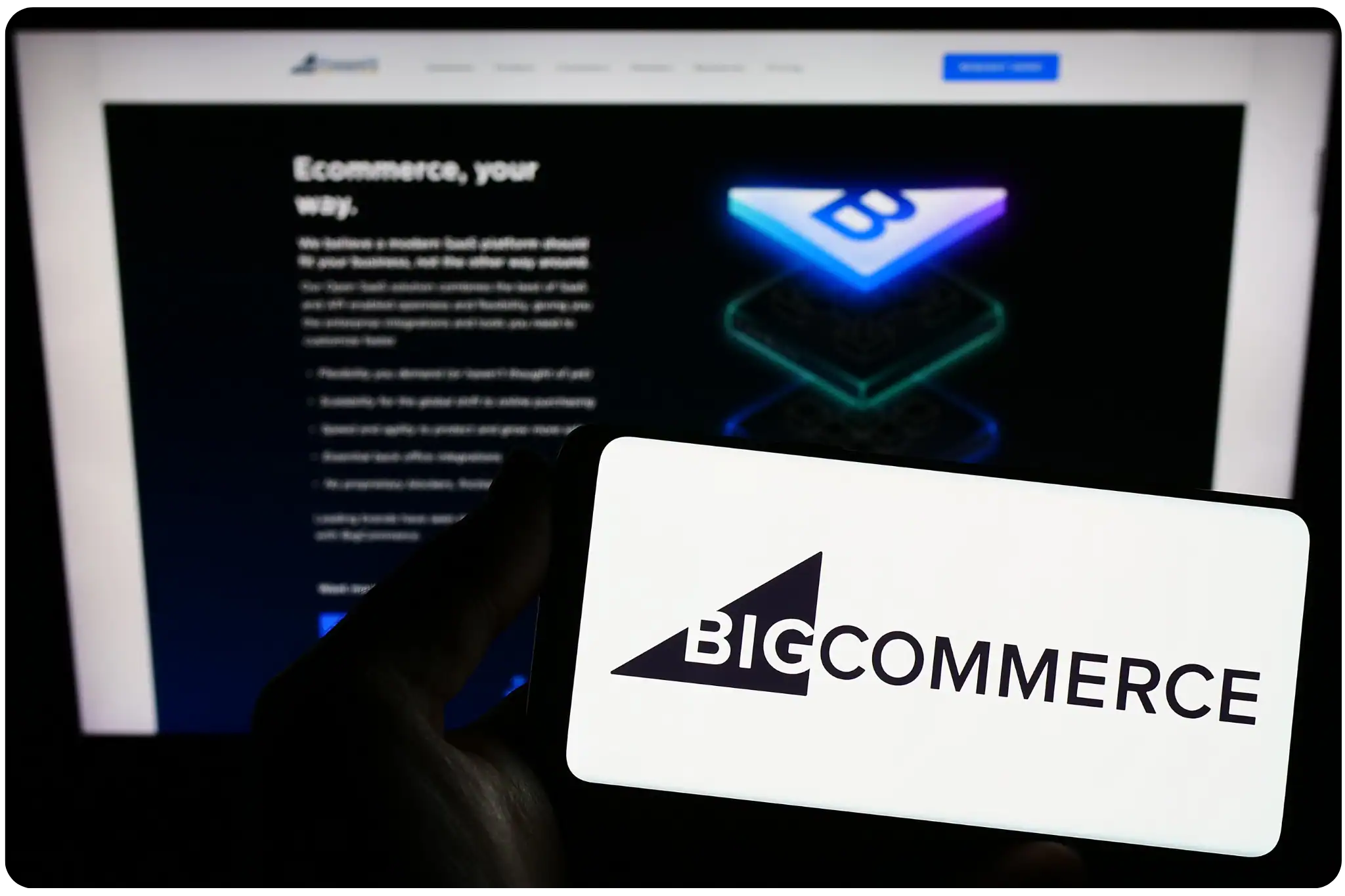
Why Opt for BigCommerce as Your E-commerce Platform
BigCommerce distinguishes itself with enterprise-grade composable commerce architecture and sophisticated B2B tools, including AI-driven inventory forecasting and dynamic pricing optimization
- AI-Commerce: Dynamic pricing and demand-based inventory management.
- Headless Commerce: API-first for custom frontend development with enterprise scalability.
- Global Commerce: Automated localization and market-specific optimizations.
- B2B: Smart workflow automation and account management.
- Composable: Custom tech integration with enterprise standards.
- Analytics: Customer behavior modeling and performance forecasting.
- Omnichannel: Inventory balancing and unified commerce controls.
- Enterprise Security: Fraud detection with threat mitigation and compliance automation.
- Sustainability: Environmental impact management with resource optimization.
- Performance: Delivery network with resource optimization and performance scaling.
Features: Intelligent commerce platform with B2B.
Ease of Use: Advanced features with management tools and automation.
Pricing: Enterprise pricing with custom solutions for big volume merchants.Customer Reviews: Top ratings for B2B and intelligent commerce.
6. Hostinger
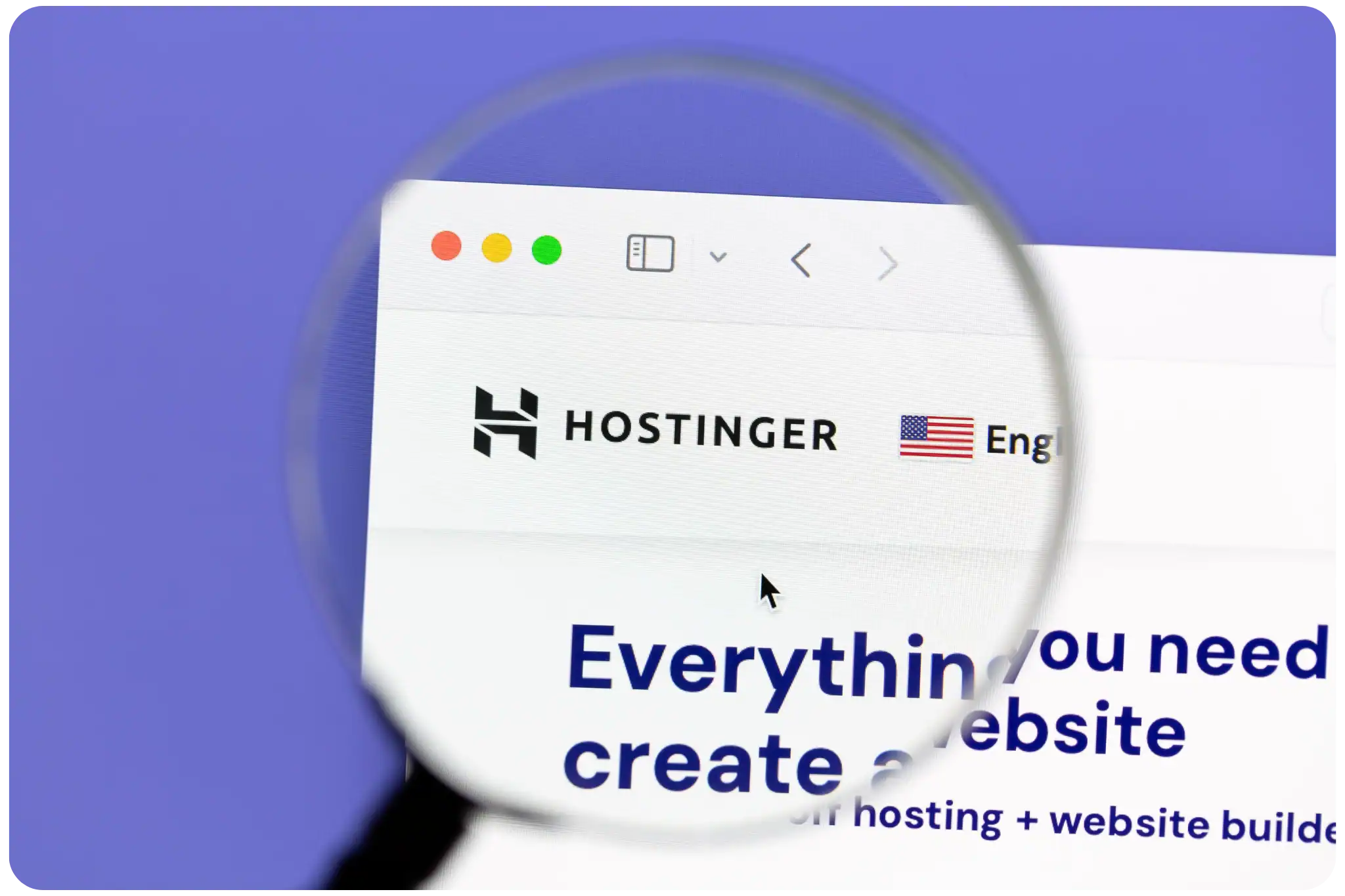
Why Choose Hostinger as Your Platform
Hostinger is one of the best website builders 2026 for startups, with full AI builder and caching for speed, an upgrade from best website builders 2025.
Key Features: AI site creation, SEO tools, mobile editing, e-commerce basics, Zapier integrations.
Best For: Budget-conscious launches.
Pricing: Starts at $3/month.
7. Webflow

Why Choose Webflow
Webflow is among the best website builders 2026 for agencies, offering visual coding and CDN, evolving from best website builders 2025 with AI design assistance.
Key Features: Custom designs, accessibility checker, e-commerce integrations, APIs.
Best For: Complex sites.
Pricing: Starts at $14/month.
8. Framer

Framer ranks in best AI website builders 2026 for interactive sites, with AI generation and code options, surpassing best website builders 2025 in personalization.
Key Features: Prototypes, ARIA support, e-commerce apps, APIs.
Best For: Design-heavy landings.
Pricing: Starts at $15/month.
9. Duda
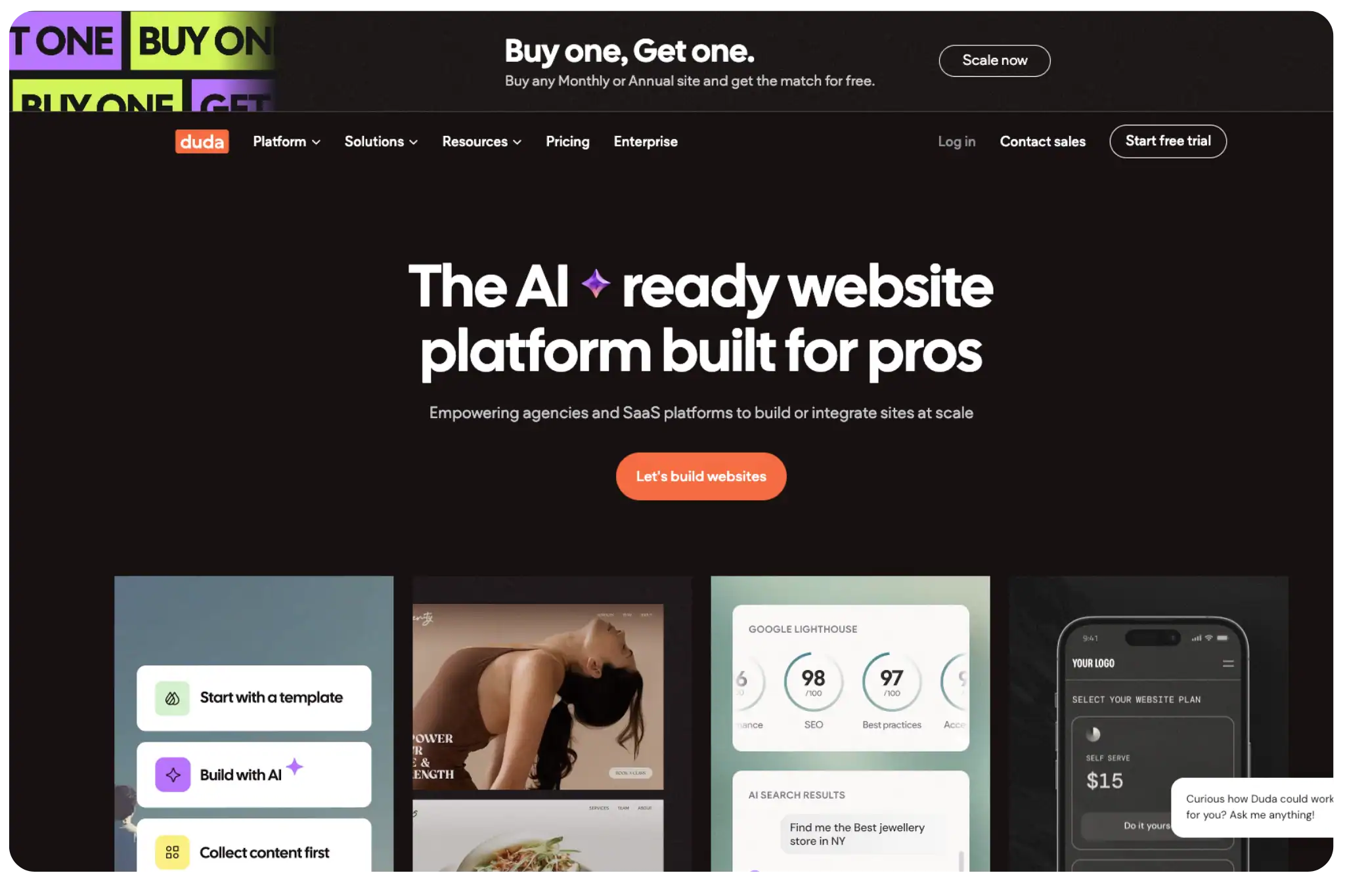
Duda is a top choice in best website builders 2026 for multi-site management, with AI and integrations, an advance over best website builders 2025.
Key Features: Client tools, SEO controls, e-commerce, APIs.
Best For: Agencies.
Pricing: Starts at $19/month.
10. GoDaddy

GoDaddy offers simplicity in best website builders 2026 for local businesses, with AI and local SEO, building on best website builders 2025.
Key Features: Quick setups, GBP embedding, e-commerce, integrations.
Best For: Small local sites.
Pricing: Starts at $10/month.
11. Emergent
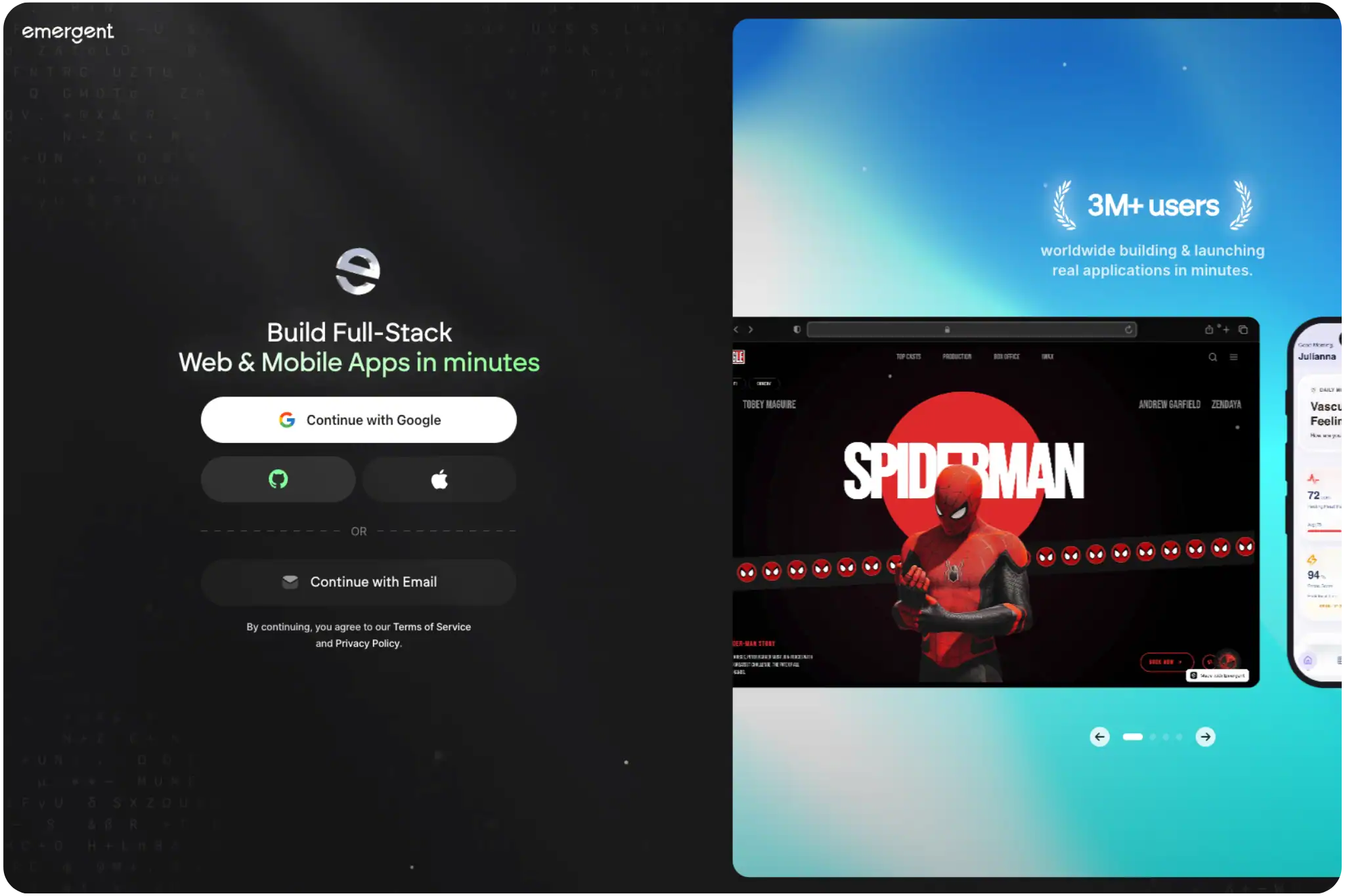
Emergent is emerging in best AI website builders 2026 with growth workflows, improving from best website builders 2025.
Key Features: AI SEO, performance, automations, scalability.
Best For: Brands.
Pricing: Starts at $20/month.
Side-by-Side Comparison of Top Features
When comparing the best website builders, it’s crucial to evaluate their top features to understand what each platform offers in best website builders 2026. For instance, Wix provides a wide range of templates and an AI-powered design assistant, while Squarespace is known for its high-quality, professional templates. Shopify and BigCommerce excel in e-commerce functionalities, offering comprehensive tools for online stores. WordPress, on the other hand, stands out for its extensive customization capabilities through plugins and themes in best AI website builders.
| Builder | Best For | Starting Price (Monthly) | AI Features | SEO Score (Out of 10) | Performance Score | E-Commerce Strength | Customization Level |
|---|---|---|---|---|---|---|---|
| Wix | Small businesses, service providers, portfolios | $16 | High (AI site generator, copy, images) | 9 | 8.5 | Strong | Medium-High |
| Squarespace | Creative agencies, designers, content-heavy sites | $16 | Medium (AI layouts, personalization) | 9.5 | 9 | Medium | Medium |
| Shopify | E-commerce stores, scaling retail | $29 | Medium (AI recommendations, automation) | 8.5 | 8 | Excellent | High |
| WordPress (with Elementor) | Blogs, enterprises, custom sites | Free (hosting ~$5) | High (AI builders like SeedProd) | 10 | 9 | Strong (via WooCommerce) | Excellent |
| Webflow | Agencies, developers, complex designs | $14 | Medium (AI-assisted design) | 9 | 9 | Medium | Excellent |
| Hostinger | Budget-conscious startups, quick launches | $3 | High (Full AI site builder) | 8 | 8 | Medium | Medium |
| Framer | Design-focused sites, interactive prototypes | $15 | High (AI generation, personalization) | 8.5 | 8.5 | Medium | High |
| Duda | Agencies managing multiple sites | $19 | Medium | 8 | 8 | Strong | High |
| GoDaddy | Simple small business sites, local SEO | $10 | Medium (AI builder) | 7.5 | 7.5 | Medium | Low-Medium |
| Emergent | Emerging brands, AI-first growth | $20 | Excellent (AI workflows, SEO) | 9 | 9 | Medium | Medium |
This table highlights how best website builders 2026 have improved AI and performance scores.
Pros and Cons of Each Builder
Wix:
- Pros: Advanced AI-powered design tools, robust app market, extensive no-code development options with Wix Velo, and strong mobile optimization in best AI website builders.
- Cons: Site migration to other platforms is challenging, and advanced features can impact performance if not optimized properly.
Squarespace:
- Pros: Premium design-focused templates, integrated e-commerce tools, advanced portfolio features, and strong content management for creators.
- Cons: Higher pricing tier required for advanced commerce features, and customization requires learning Squarespace’s specific design system.
Shopify:
- Pros: Comprehensive omnichannel selling tools, headless commerce capabilities via Hydrogen framework, strong AI integration for automation, and marketplace integrations.
- Cons: Premium apps can significantly increase monthly costs, and advanced customization often requires hiring Shopify experts.
BigCommerce:
- Pros: Enterprise-grade B2B features, headless architecture support, built-in multi-currency tools, and no transaction fees on any plan.
- Cons: Enterprise-focused pricing can be prohibitive for small businesses, and the learning curve for utilizing advanced features is steep.
WordPress:
- Pros: Full site editing capabilities, extensive AI plugin options, headless CMS support, and complete control over hosting and infrastructure.
- Cons: Performance optimization requires technical expertise, and managing multiple plugins can lead to compatibility issues and security vulnerabilities.
Hostinger:
- Pros: Affordable AI builder, solid performance, easy integrations.
- Cons: Limited advanced customization.
Webflow:
- Pros: Visual coding, high performance, developer tools.
- Cons: Steeper learning curve.
Framer:
- Pros: Interactive designs, AI generation, high customization.
- Cons: Less e-commerce focus.
Duda:
- Pros: Multi-site, strong e-commerce, APIs.
- Cons: Higher cost for agencies.
GoDaddy:
- Pros: Simple setup, local SEO.
- Cons: Limited advanced features.
Emergent:
- Pros: AI workflows, scalability.
- Cons: Newer platform, less established.
User Experience and Interface Comparison
The user experience and interface of the best website builders can significantly impact the ease with which a website is created and managed in best website builders 2026. Wix and Squarespace offer highly intuitive and visually appealing interfaces, making the website building process smoother for users, especially beginners in best website builders for small business. Shopify also provides a user-friendly experience but with a focus on e-commerce functionalities. WordPress, while offering the most flexibility and customization options, has a steeper learning curve and may require more technical expertise, especially for complex sites. BigCommerce offers a balance between advanced features and usability, though it might be overwhelming for absolute beginners. Compared to best website builders 2025, interfaces in 2026 are more AI-assisted for better UX.
In conclusion, each of the best website builders has its unique strengths and weaknesses, and the choice largely depends on the specific needs, technical skills, and goals of the user. A side-by-side comparison of features, along with an understanding of the pros and cons and the user experience of each platform, can guide users in making an informed decision that best suits their website project in best website builders 2026.
Exploring Customization Options in Website Builders
Customization is a key factor when choosing among the best website builders, as it determines how much you can tailor your site to meet specific needs and brand identity in best website builders 2026. Different builders offer varying levels of customization:
- Wix provides a highly flexible drag-and-drop editor, allowing users to place elements anywhere on the page. It also offers a vast library of templates and the ability to add animations, video backgrounds, and custom fonts in best AI website builders.
- Squarespace is known for its stylish templates, which can be customized with different color schemes, fonts, and page configurations. While it doesn’t offer a drag-and-drop interface like Wix, it provides extensive styling options through its design editor.
- WordPress stands out for its limitless customization capabilities, thanks to thousands of themes and plugins. It’s ideal for users who need a highly specific or unique site and are comfortable with more technical aspects of web design in best website builders 2026.
- E-commerce platforms like Shopify and BigCommerce offer customization tailored to online stores, including various storefront themes, product display options, and checkout customization.
The Importance of Responsive Design and Mobile Compatibility
In today’s digital landscape, responsive design and mobile compatibility are not just beneficial but essential in the best website builders. A significant portion of web traffic comes from mobile devices, making it crucial for websites to look and function well on smartphones and tablets.
- Most modern best website builders 2026 automatically include responsive design in their templates, ensuring that websites adapt to different screen sizes and resolutions.
- Squarespace and Wix offer templates that are inherently responsive, meaning they automatically adjust to fit the screen of any device.
- WordPress users need to ensure they choose responsive themes, as not all are mobile-friendly by default.
- For e-commerce sites, platforms like Shopify and BigCommerce provide mobile-optimized shopping experiences, which is vital for attracting and retaining customers who shop on their phones in best website builders for small business.
Responsive design not only improves user experience but also contributes to SEO. Search engines like Google prioritize mobile-friendly websites in their rankings, recognizing the growing trend of mobile web browsing in best website builders 2026.
In summary, customization and flexibility vary across different best website builders, and the choice depends on the user’s specific needs and technical comfort level. Responsive design and mobile compatibility are critical elements to consider, as they significantly impact user experience and search engine rankings. By choosing a builder that aligns with these needs, users can create a website that is both aesthetically pleasing and functionally robust across all devices, especially when transitioning from best website builders 2025.
SEO Features in Website Builders
Search Engine Optimization (SEO) is crucial for increasing visibility and driving traffic to your website in the best website builders. Most modern best website builders 2026 come equipped with a range of SEO tools to help optimize your site:
- Wix offers an SEO Wiz tool, guiding users through the process of optimizing their site, including setting up keywords and meta descriptions. It also allows for custom URLs and alt text for images.
- Squarespace provides built-in SEO tools for basic needs like page titles, descriptions, and custom URLs. It also automatically generates sitemaps and uses clean HTML markup for better indexing.
- WordPress, with its SEO plugins like Yoast SEO, offers comprehensive SEO capabilities, from detailed on-page optimization to readability checks and sitemap generation in best AI website builders.
- E-commerce platforms like Shopify and BigCommerce include SEO features tailored for online stores, such as product title and description optimization, and structured data support for product listings.
Marketing Tools and Integrations
Effective marketing is key to attracting and retaining customers, and the best website builders offer various tools and integrations for this purpose in best website builders 2026:
- Wix and Squarespace both offer email marketing solutions, social media integration, and tools for creating promotional pop-ups and banners.
- WordPress excels with its vast array of plugins for every marketing need, from email marketing to social media integration and lead generation tools.
- Shopify stands out in e-commerce marketing, offering tools for email campaigns, discount codes, and integration with platforms like Facebook and Instagram for selling products in best website builders for small business.
- BigCommerce also provides robust marketing tools, including segmentation, abandoned cart recovery, and Google Shopping integration.
- Additionally, many best website builders offer integration with third-party tools like Google Analytics for tracking website performance and user behavior, essential for informed marketing decisions.
In conclusion, the choice of a website builder should consider not only its design and customization features but also its SEO and marketing capabilities in best website builders 2026. These tools are essential for ensuring that your website not only looks great but also reaches your target audience effectively. Whether it’s through built-in features or third-party integrations, the right combination of SEO and marketing tools can significantly enhance the online presence and success of your website, especially when upgrading from best website builders 2025.
Understanding Pricing Structures
The best website builders offer a range of pricing structures to cater to different needs and budgets in best website builders 2026. Generally, these can be broken down into several tiers:
- Free Plans: Most best website builders offer a basic free plan. These are often limited in features, come with the builder’s branding, and have restrictions on domain names.
- Monthly Subscriptions: Paid plans are typically offered on a monthly subscription basis. These plans vary in price and features, with higher tiers offering more advanced capabilities like e-commerce tools, increased storage, and marketing features in best AI website builders.
- Annual Subscriptions: Many best website builders offer discounts for annual subscriptions. Opting for an annual plan can be more cost-effective in the long run compared to monthly billing.
Free vs Paid Options
The choice between free and paid plans depends on your website’s purpose and requirements in best website builders 2026:
- Free Plans are suitable for personal projects, portfolios, or testing the platform. However, they often lack professional features like a custom domain, ad-free experience, and comprehensive SEO tools.
- Paid Plans are essential for a professional or business website. They provide more storage, bandwidth, and access to a broader range of templates and customization options. Paid plans also typically offer better support and e-commerce capabilities in best website builders for small business.
Value for Money Analysis
When assessing the value for money in best website builders 2026, consider the following:
Wix ranges from $16-45/month (Business & eCommerce plans), offering a comprehensive feature set including abandoned cart recovery, custom reports, and subscription sales at higher tiers. Their most popular Business Unlimited plan at $27/month provides excellent value for small-to-medium businesses in best website builders for small business.
Squarespace’s business plans range from $23-49/month, with their Business plan at $33/month being particularly competitive for its combination of marketing tools, professional email from Google, and advanced analytics.
WordPress.com’s Business plan at $25/month includes plugin access and advanced SEO tools, while their eCommerce plan at $45/month adds shipping carrier integration and acceptance of payments from 60+ countries.
Shopify has adjusted their pricing to $39-399/month, with their mid-tier $105/month Shopify plan offering the best balance of features including professional reports and lower transaction fees.
When evaluating value for money, focus on:
Feature Integration: Modern best website builders 2026 now bundle previously premium features like SSL certificates, basic SEO tools, and mobile optimization in base plans. Look for platforms offering advanced marketing tools, AI-powered features, and comprehensive analytics in their pricing, an improvement over best website builders 2025.
Support Structure: Premium plans increasingly include priority support, dedicated success managers, and extended technical assistance. This can be crucial for business continuity in best website builders.
Growth Potential: Consider platforms offering headless commerce options, API access, and development tools if you anticipate needing enterprise-level capabilities in the future for best website builders 2026.
Resource Allocation: Many best website builders now include enhanced storage and bandwidth limits, with some offering unlimited resources at higher tiers. Consider your growth trajectory when selecting plans.
For small businesses and entrepreneurs, Wix and Squarespace continue to offer strong value through their mid-tier plans in best website builders for small business. WordPress remains the most cost-effective for content-heavy sites requiring extensive customization. For e-commerce, while Shopify’s pricing has increased, their ecosystem and reliability often justify the investment for serious online retailers in best website builders 2026.
The best value comes from matching your specific needs with a plan that provides room for growth without overcommitting to unnecessary features. Consider starting with a mid-tier plan that offers essential business tools, then upgrading as your needs evolve, especially when moving from best website builders 2025.
Types of Customer Support Offered
Effective customer support is a crucial aspect of any of the best website builders, as it ensures users can get help whenever they encounter issues or have questions in best website builders 2026. The types of support offered can vary significantly among different platforms:
- Live Chat: Many best website builders, including Wix and Shopify, offer live chat support. This allows for real-time assistance, which is particularly useful for quick queries or immediate technical issues.
- Email Support: Email support is a common feature across most platforms, including Squarespace and WordPress. It’s suitable for less urgent issues where detailed explanations or attachments may be required.
- Phone Support: Some builders like GoDaddy provide phone support, offering a more personal touch and often quicker resolutions for complex issues in best website builders for small business.
- Social Media Support: Increasingly, platforms are also offering support through social media channels, recognizing the need for diverse communication channels in best website builders 2026.
Availability of Resources
In addition to direct customer support, the availability of self-help resources is vital for users to learn and solve problems independently in best website builders:
- Tutorials and Guides: Comprehensive tutorials and guides are invaluable, especially for beginners. WordPress and Shopify offer extensive libraries of articles and step-by-step guides covering a wide range of topics.
- Video Tutorials: Platforms like WordPress and Shopify provide video tutorials, which are particularly helpful for visual learners and for explaining more complex functionalities in best AI website builders.
- Forums and Community Support: Community forums, available on platforms like WordPress, allow users to seek help from fellow users, share experiences, and find solutions to common issues. These forums can be a treasure trove of information and tips.
- Webinars and Online Courses: Some best website builders offer webinars and online courses. For instance, Shopify has its own academy providing courses on e-commerce and website management.
- Blogs and Articles: Regularly updated blogs, as seen on BigCommerce and Wix, provide insights into new features, trends, and best practices in website design and online marketing in best website builders 2026.
The level and type of user support and resources can significantly impact the overall experience with the best website builders. Users should consider not only the direct support channels available but also the range and quality of self-help resources. This combination of support ensures that users can effectively build, manage, and troubleshoot their websites, regardless of their technical expertise, especially in transitioning from best website builders 2025.
Decision Criteria by Business Type and Budget
To choose among the best website builders 2026, evaluate based on business type and budget.
- Small Business/Service-Based (Budget: <$500/year): Prioritize ease and AI like Wix or Hostinger for fast launches in best website builders for small business. Criteria: Low learning curve, built-in SEO/marketing, mobile editing. Avoid if needing heavy custom code.
- E-Commerce (Budget: $500–$2,000/year): Shopify or Wix for sales features in best website builders 2026. Criteria: Inventory tools, payment gateways, scalability to 1,000+ products. Test conversion rates via trials.
- Agencies (Budget: $1,000+/year): Webflow or Duda for client management. Criteria: White-labeling, role-based access, APIs. Focus on workflow efficiency.
- Enterprise/Content-Heavy (Budget: $2,000+): WordPress or Squarespace. Criteria: Headless support, multi-author CMS, high traffic handling. Ensure compliance and uptime.
General Tips: Start with free trials (most offer 14–30 days). Evaluate based on your tech stack—e.g., if using HubSpot, check integrations. For budgets under $100/month, no-code options; over, consider developer-friendly. In best website builders 2026, factor AI maturity to future-proof, beyond best website builders 2025.
Moving Forward
Choosing the right website builder is a decision that should align with your specific needs, skill level, and long-term goals. For beginners, platforms like Wix offer ease of use and simplicity. WordPress, with its extensive customization options, is ideal for those requiring more control and scalability, especially for SEO. E-commerce-focused businesses might find Shopify or BigCommerce more aligned with their needs.
When selecting a website builder, consider not only the immediate requirements of your website but also potential future needs. A platform that offers scalability, robust customer support, and a suite of SEO and marketing tools can be a more sustainable choice in the long run.
The landscape of website builders is diverse and ever-evolving. By carefully considering the key points discussed, you can choose a platform that not only meets your current needs but also supports the growth and evolution of your online presence in the years to come.
FAQs
For beginners, ease of use is a key factor when choosing among the best website builders. Wix is often recommended as the easiest builder for novices due to its intuitive drag-and-drop interface and wide selection of pre-designed templates in best AI website builders. It simplifies the design process, allowing users to create a professional-looking website without any coding knowledge. Another beginner-friendly option is WordPress, which offers a straightforward, user-friendly platform with various customizable templates in best website builders 2026.
When it comes to SEO, WordPress stands out due to its extensive customization options and the availability of powerful SEO plugins like Yoast SEO in best website builders. These tools offer comprehensive guidance and control over SEO elements, from meta tags to sitemaps. However, for those seeking a more integrated approach, Squarespace and Wix also offer robust built-in SEO tools that are easier to navigate for beginners, ensuring that basic SEO needs are seamlessly met in best website builders 2026.
When it comes to SEO, WordPress stands out due to its extensive customization options and the availability of powerful SEO plugins like Yoast SEO in best website builders. These tools offer comprehensive guidance and control over SEO elements, from meta tags to sitemaps. However, for those seeking a more integrated approach, Squarespace and Wix also offer robust built-in SEO tools that are easier to navigate for beginners, ensuring that basic SEO needs are seamlessly met in best website builders 2026.
Switching best website builders can be a complex process, depending on the platforms involved. While it’s possible, it often involves manually transferring content and redesigning your site on the new platform. Some best website builders offer tools to import content from specific other builders, but this usually doesn’t include a complete transfer of design and functionality. It’s advisable to carefully choose your website builder considering long-term needs to avoid the need for switching later, especially in best website builders 2026.
Free website builders can be worth it for specific purposes, such as personal projects, portfolios, or testing an idea in best website builders. However, they come with limitations like the presence of the builder’s branding, limited customization options, and a lack of certain features such as custom domains and e-commerce functionality. For a professional or business website, investing in a paid plan is generally recommended to access more features, greater customization, and a more professional appearance in best website builders for small business.
Shopify and Wix are top best AI website builders for e-commerce, with AI recommendations and automation.
Evaluate best website builders for small business based on budget, ease, AI features, and scalability, like Wix or Hostinger.
Contact us for Help Choosing the Right Website Builder
If you’re wondering what website platform is best for your business, contact the website development experts at TheeDigital or schedule a consultation here
Tags: Web Design • WordPress

